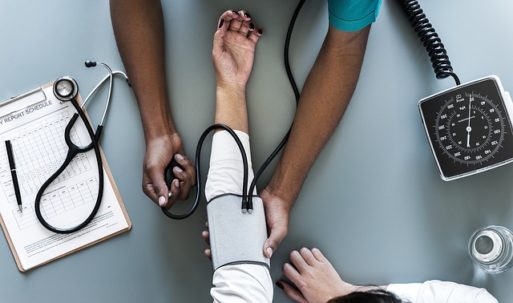Twenty years ago I read a letter to an editor urging young widows to go for annual physicals. The message jolted me because my 49-year-old husband had died a few weeks earlier.
The article convinced me that, for my sake and the sake of my young children, I should see a doctor. He acknowledged I was in for a very long haul of grieving because I was a “young widow.” Every year, 800,000 people are widowed in this country, and more than one third are younger than age 45.
At the time (the late 1990s) new evidence was beginning to show that the grieving process was not nearly as brief or transitory as had been traditionally thought. These new findings indicated that grief and its related stress affected young widows more seriously than women who lose their husbands later in life because of the longer period of time the younger bereaved would likely experience the physical effects of grief: elevated blood pressure, unhealthful eating habits and weakened immune systems. The studies also found that when an early death is sudden, as with my 49-year-old husband, the effects on the surviving spouse can be particularly severe and long lasting. Unlike older widows, young widows face the greater part of their lives before them, putting the younger woman who has lost her husband at greater risk for the long term.
A few months after my husband’s death the doctor found my blood pressure to be elevated. He was also concerned about my 10-pound weight loss — an outcome friends actually complimented me on — in the short time since my husband had died.
Silent Risk Factors
Like most people, I did not feel a rise in my blood pressure. My weight loss certainly didn’t bother me, and I expected I’d be sad for a very long time. Yet, if these symptoms of grief went untreated for an extended period of time — which could be four or five decades for a young widow — unnoticed and insidious damage could escalate. Ultimately they could lead to a critical episode like a heart attack or a late-stage cancer.
None of my early symptoms of grief called for drastic measures. Yet, my doctor scheduled me for regular blood pressure checks and recommended the children and I see a grief counselor. I followed doctor’s orders through the next annual physical. My weight and blood pressure stabilized. I still grieved, but my physical reactions to my grief were being monitored. The same went for the next year and the one after that.

Early Detection
Five years after my husband died, I still grieved but I felt fine, physically. I expected to go to my annual exam and not have to see the doctor again for a year. Instead, I got a phone call the day after my appointment.
“There’s blood in your urine and your liver function is off,” he told me on the phone. “We’ve got to find out why.”
I soon learned how deceptive “feeling fine” had been. The next day a tumor the size of my fist appeared atop my right kidney on an ultrasound screen. There had been no pain, no bleeding perceptible to the eye (just microscopic blood cells in my urine sample on the day of my physical) and no palpable lump.
An MRI followed. Then a diagnosis: Late Stage-2 kidney cancer. Since I had no risk factors for kidney cancer, my doctor said the high stress I had experienced through five years of grieving could have had some connection to my cancer diagnosis.”Possible but not provable,” was the way he put it. Yet, I was fortunate. Within weeks, major surgery removed the tumor and kidney — before the cancer had spread. My lymph nodes were clean.
Remain Vigilant Against the Effects of Prolonged Grief
For well over 10 years now, I still tell my doctor at my annual physical how thankful I am to have found the letter to an editor advocating regular physicals for widows – especially young widows.
“Early detection,” my doctor replies. “Prevention is the way to go.” And he doesn’t stop there. “Any loss can have negative cardiac consequences or weaken resistance.” I understand what he is saying. Dealing with a death, a divorce, a loss of a job –all of these create the added stress that can weaken the body and its defense against disease.
Even as a widow I have been lucky in a number of ways. Twenty years ago, a piece in the morning paper got me to see a doctor in the first place. Then that doctor treated me for silent precursors of heart disease. Five years later, a routine exam detected cancer in an early, curable stage.
Sometimes I wonder what would have happened if I didn’t start seeing a doctor regularly after my husband’s death. I am grateful I came across that letter to an editor in 1999. I’d like to write it forward.

 Young Widows Are More Susceptible to Ill Health because They Grieve Longer
Young Widows Are More Susceptible to Ill Health because They Grieve Longer


 John Mulaney’s “Funeral Planning” on Netflix: No Real Plan
John Mulaney’s “Funeral Planning” on Netflix: No Real Plan
















